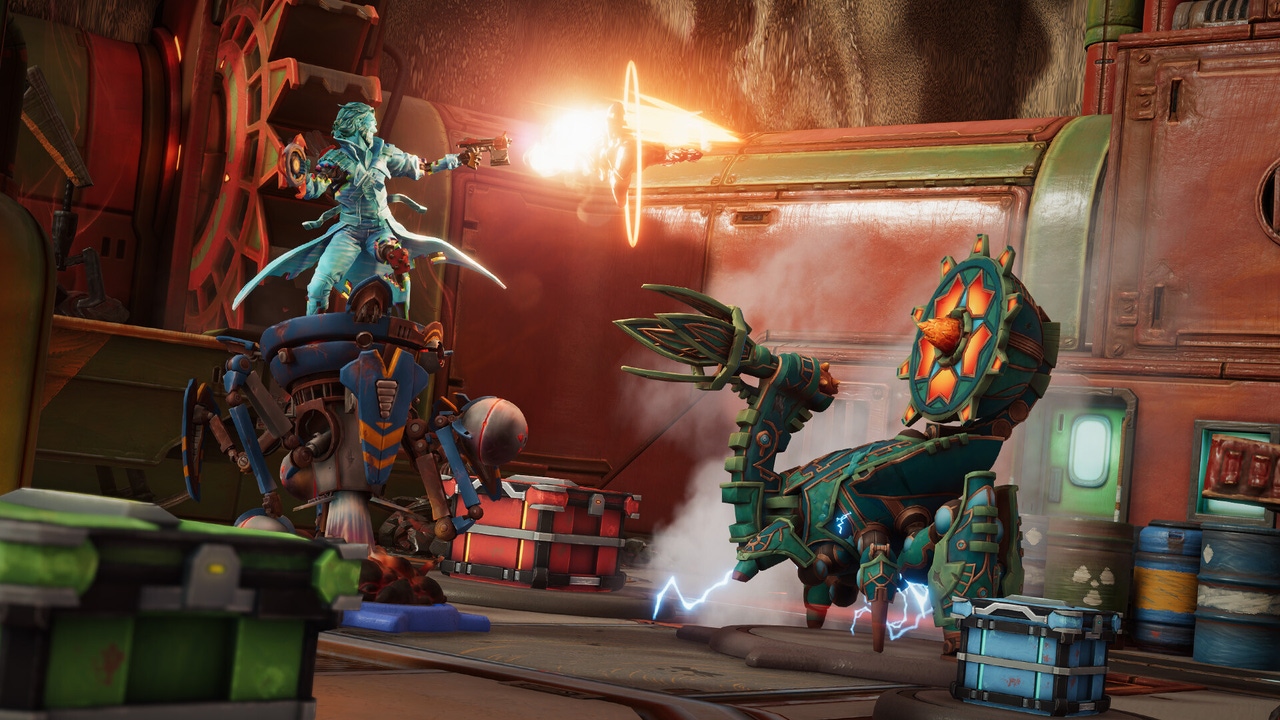Trending
Opinion: How will Project 2025 impact game developers?
The Heritage Foundation's manifesto for the possible next administration could do great harm to many, including large portions of the game development community.
In the latest Game Developer podcast episode, we dive deep on prototyping and iterative design with Charlie Cleveland, game director on Subnautica and Moonbreaker.

In the latest episode of the Game Developer podcast (recorded at GDC Showcase, with our sibling organization GDC), we chatted with Charlie Cleveland, game director and CEO at Moonbreaker developer Unknown Worlds Entertainment, as well as the creator of Subnautica. We got very excited together about the power of collaboration tool Miro, the excitement of crunchy systems design and the nuances of random numbers, and the crucial importance of rapid prototyping and iterative design, even if the initial results aren't pretty.
Music by Mike Meehan.
Listen now on Apple Podcasts, Google Podcasts, and Spotify.
Rapid prototyping is crucial to Unknown Worlds' process, as Cleveland is bullish on making something "terrible" for the sake of starting the creative cycle of building and iterating.
"If we just had to play something this Friday, like how, how could we do that?" Cleveland says, detailing his and his team's approach. As long as everyone is on board and knows that things will look rough, it's ok!
"So you just come up with something terrible…you'll just play it for half an hour, maybe 15 minutes, but it's a sketch. You're learning something extremely important. So you just basically have to lower the quality bar and you have to just tell people whatever it is, it's gonna be crap. Don't worry: you're not trying to make something great!
"You're just trying to make something and by making something and making it crappy, you now get this momentum, this incredible momentum because you're not working on architect systems or designs that are totally nebulous and in the future and unknowable, you're actually working with a game that you're all playing. It's available to iterate on immediately."
We also had a go at randomness for designers and what models of random number generation (RNG) might produce the best results for different design philosophies.
"I think that randomness is an entire discipline within game design. Just understanding it, you know, you think it's not that important and then you get bitten by some aspect of your players raging about something and you realize it's actually super important. You think you solve the problem and you haven't and then try to solve it another way. It's kind of like, quite the Boogeyman in game design, I would say."
"Your entire feel of your game can change depending on what randomness you choose." Says Cleveland.
Cleveland notes Darkest Dungeon as one game that fully leans into one approach to randomness, with excellent effect:
I think Darkest Dungeon is a really good example of this, where they lean heavily into the ‘true random' (model of RNG)... which is totally cruel. And that's what it feels like. It doesn't care about you. It doesn't matter how well you're playing. There's going to be sometimes you could be losing and suddenly you're winning. Sometimes you can play super well and you will lose everyone—your party will be wiped and that was an extremely intentional decision. And players can rage about it. They can love it, " he notes.
He then explained the use of "shuffle bags" as a way of spreading out a series of random numbers, and how that fits nicely into Moonbreaker's design.
"You distribute the dice roll so you have a nice even spread—not too even—but a nice even spread of low numbers, the high numbers, you stick them all in a bag. And now that unit whenever it attacks, it pulls one number out of the bag. So if you pull a lot of low numbers, now the ones that are left in there tend to be higher: medium and higher. So now if you've made a bunch of mistakes, you're gonna start to get a bunch of hits, but you can't game it too much because the number of items in the bag is [uncertain]. You need to make it nebulous."
Check out the full episode embedded above for the hour-long discussion!
Read more about:
Game Developer PodcastYou May Also Like